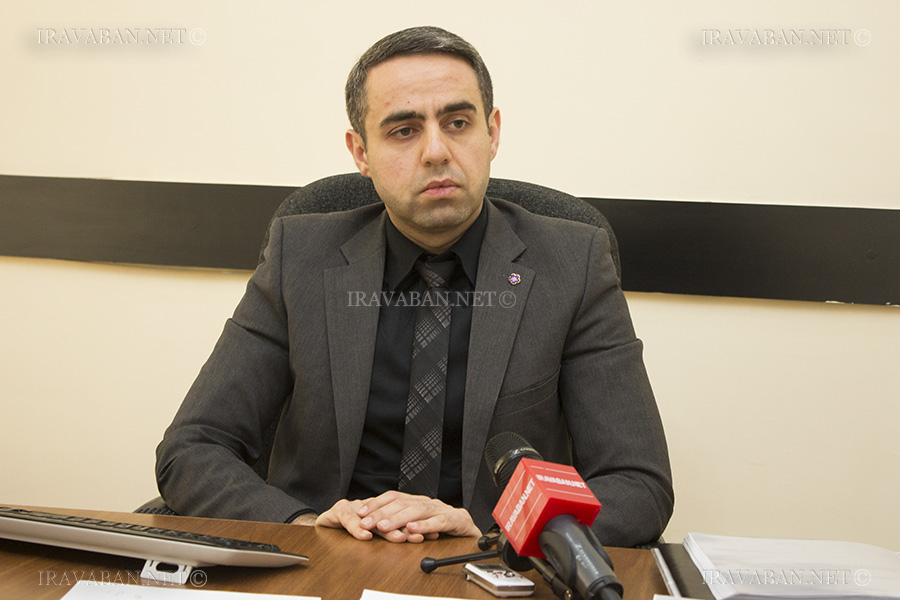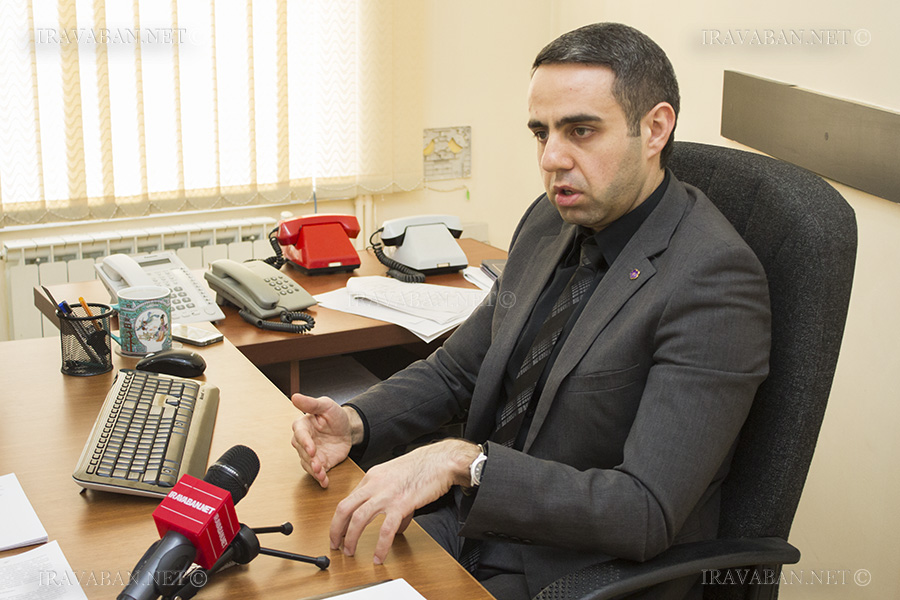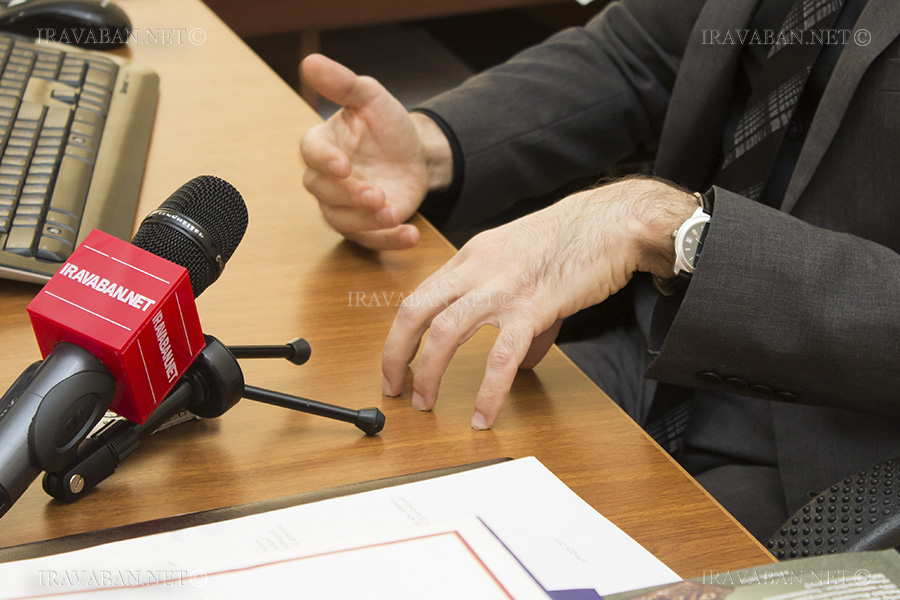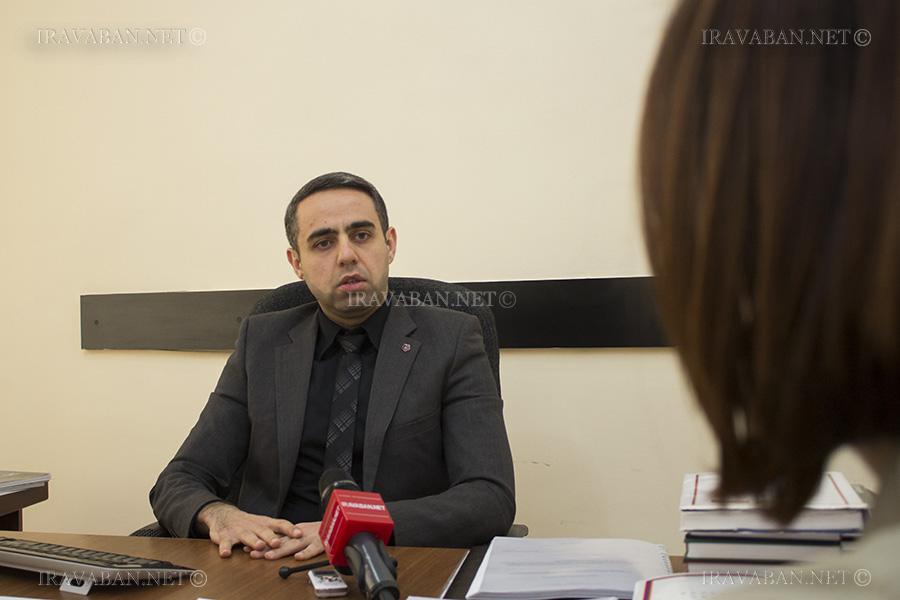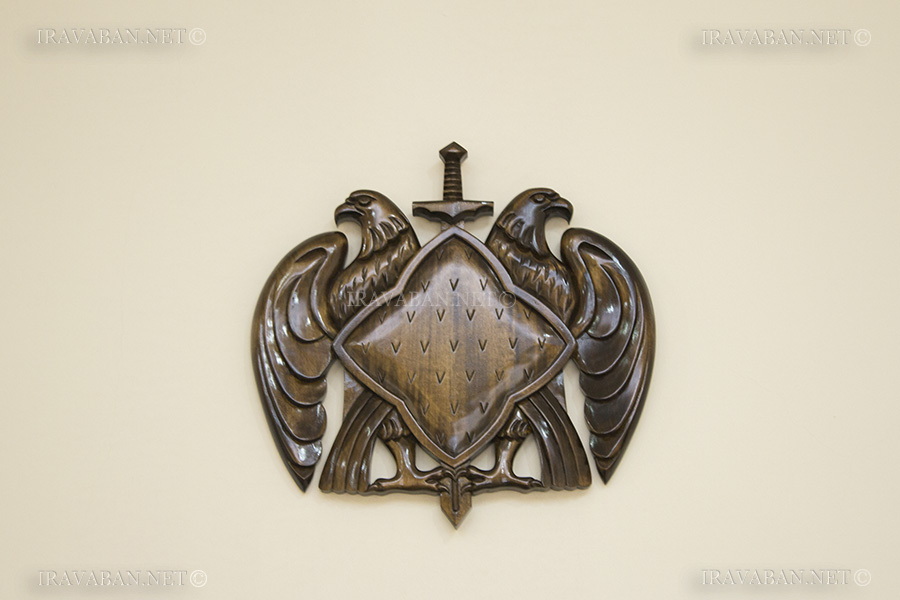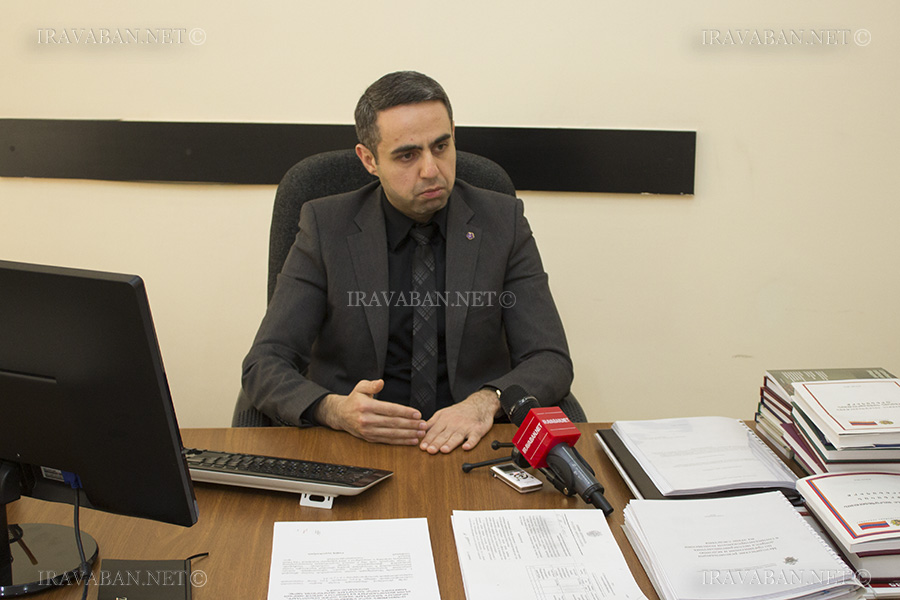There is such a situation when a person can give false testimony and stay unpunished. This is the consequence of the fact that there cannot be criminal proceedings against a person unless the criminal case is sent to the court and the verdict is reached, which will prove the incredibility of the testimony of the person. And sometimes the cases are not even sent to the court, they are annulled. iravaban.net talked with the Deputy Chairman of the RA Investigative Committee, PHD in Law Artur Ghambaryan about this and many other problems and the contemporary issues of the legal field in the frames of the “Law Scholars” project.
– Mr. Ghambaryan, you are the youngest PHD in Law in Armenia. Was it difficult to reach your position is such a young age?
– To tell the truth, this question is unexpected to me. Of course, it was difficult. Anything that is valuable and durable is not easily given. The road of science has its specific difficulties, there are stereotypes, obstacles, but any barrier can be overcome. There were supporters, people who helped me, and there were also many people who tried to cause obstacles. But I am also grateful to them, because they promoted my development.
– Recently you have constantly spoken about the separation of the theoretical and practical parts of the legal field nowadays. Is it a serious problem of the system?
– Yes, you are right, I have spoken about it many times, today the practical part is isolated from the theoretical part, and vice versa. It is an extremely dangerous situation, and we have bipolarity. But at the same time I have to mention that the separation of the theoretical and practical parts during the Soviet Union era is not so sharply noticed today. This is explained by the fact that a new generation of lawyers is coming, who engage in practice simultaneously with the science. I do not see any other variant of combining the science and practice. As for me, I was engaged in practice being a person of science, and, on one side, I understood how the practice can help to enrich your theoretical knowledge and to present the scientific argumentations in the right way, and, on the other side, it also greatly helps the scientific thinking to give the right questions and to do practical analysis. When I see young specialists who deal with science and can invest their scientific ideas in the practice without any confusion, it gives some hope that the combination of the two parts will become a reality.
– The prosecutive disposition of the court and the prejudicial organ is often mentioned as a problem of the system in the field. You also cover these questions. What is the reason of this?
– Unfortunately, one of the biggest “illnesses” of our criminal jurisdiction is the condemnatory tendency. If the condemnatory tendency of the prejudicial organ is a bit obvious and has an official character, because the investigator’s condemnatory behavior is fixed by the law, then it is more dangerous when the court shows condemnatory tendency. And the defense of the accused person’s rights just becomes an illusion in conditions of the forensic investigation with prejudicial prosecutive character. No lawyer can manage an effective defense process in such conditions. You asked about the reasons. Soon my monographs on this question will be published. When I was doing research about the causes of the condemnatory thinking of investigators, it was found out that in 1930s, during the Soviet years this question had been discussed, and they wanted to decide whether the prejudicial organ should be in the Prosecution system or act as an independent investigative organ. Vishinski had expressed an idea during these discussions, he said that the investigator was a small prosecutor and that the investigator and the prosecutor were two distinct realizations of the same organ, which means that the investigator was a prosecution serving organ. These thoughts also found their reflection in the Criminal Code. This means that the investigator has to obtain condemnatory evidence in order to help the prosecutor to defend the accusations in the court later on. I am speaking about the reality, I do not fall into the formula that the prosecutor should be unbiased and work objectively. We all understand perfectly that the accusation defending prosecutor has a condemnatory psychology. Only the theorists, who are separated from the reality, can insist on such statements. It is right that before the case the prosecutor only thinks about the proof, which justifies the accusation. But when the condemnatory tendency spreads on the prejudicial organ, it already becomes dangerous for the person. On the one hand, the accused does not have the opportunity to obtain proof on his or her own, the lawyer is not given such a privilege by the law, and on the other hand, we think that the investigator should get both accusation and justifying evidence, but he is also considered the accusation side. This is a famous truth that a person cannot be both an objective investigator and an accusation side. It contradicts the elementary norms of psychology. I consider the solution to this problem to be one of the general issues of the criminal justice. We have to form the prejudicial organs in a way that they can obtain justifying and accusative evidence, for the lawyer to be able to manage the defense. And there can also be a more perspective solution: to give the lawyer the opportunity to obtain objective evidence too. There were situations when some criminal cases were annulled with the help of the data obtained by lawyers, and it is also useful for the prosecutor. When I say objective evidence, I mean non-verbal proofs: videos, bank secrets, and so on. During the small period of time that I worked as a lawyer, I had an opportunity to view the criminal procedures from another aspect. I realized that in many cases we face a very big state mechanism and we become unable to present the absolute truth, the lawyer really tells the simple truth in the court, but the problems are not solved, courts just silently deny them.
– What is the reason? Are the courts independent or not? Does the Prosecutor’s Office have a more weight? Or are there any obstacles in understanding the essence of the problems? Is it a question of literacy or will?
– All the factors have their effect. There is an important truth to remember. The unfair and not professional specialists are vulnerable. I faced some cases when the specialists were not professional, they could not orientate, and there were cases when they understood that they were vulnerable, because there were some mechanisms of influence on them, and as they were vulnerable, they just had to obey the pressure.
– If the judges are appointed not by the RA President, but through elections, will it be a solution for the independence of the courts?
– It is necessary to carry out a deep analysis in order to answer this question. I think that the formation method of the judicial power is not more important than the fact that we have to do everything to have comprehensively independent judges, fair and professional, as I mentioned. We have both fair and professional judges in the system who implement a very interesting justice, but, unfortunately, they are not many. We have to be able to provide quality with the help of professional and fair judges.
– It is known that especially during the latest years a growth of justifying verdicts has been noticed. What will you say about it?
– I welcome those justifying verdicts, but it is necessary to study how many of them have been upheld by the Court of Appeal, and how many have been annulled. It means we should understand the methodology of carrying out statistical analysis.
– In your opinion, what is the solution to the condemnatory tendency of the prejudicial organs and courts?
– The change of generations in the legal system can be a solution. Another version is the introduction of the institute of juries. Recently I began to think more deeply that it may be a qualitative change. I think that today’s judges would not be better than the jury of our society, even if they are not professional lawyers. The thing is that the criminal jurisdiction in our country is a closed system, and innovations are accepted in a very difficult way, the resistance is great.
As for the prejudicial organ, I would say that it is impossible to change the person’s psychology in a year; you can just easily change the laws. All the possible steps should be taken in order to change people’s thinking and psychology, beginning from trainings to personal work. This can help to change the thinking of the prejudicial organ and the legal authority. This is a long and strategic process.
We have to see who goes into the legal system, ex-prosecutors and attorneys. A person, who has been an attorney for years, cannot go to the court and say that from now on he is an independent arbitrator. I do see changes in the recent time, when people come to the court from the Advocate’s Corpse, which is very welcomed. There surely will be a change in quality.
– You also speak about another problem of the system about giving false testimony and remaining unpunished.
– The low level of authority of our jurisdiction caused that today our society has such a way of thinking that it is allowed to lie to the jurisdiction organ. Lying to the jurisdiction organ is a very serious sin, at least in my opinion. We have to strictly fight against this defective occurrence and also elaborate corresponding legislative mechanisms.
Today we have such a situation when a person obviously lies to the prejudicial organ, which contradicts all the proofs in the criminal case. The Cassation Court says that unless the case is sent to the court, and unless the verdict is reached and affirmed about the fact that the person’s evidence is not credible, we cannot start a criminal prosecution. As a result we have the following situation: a person obviously gives false testimony, but the case is not sent to the court, it is annulled during the prejudicial inquiry. So the person sees that he/she has given false testimony, and has not been accused of anything, and tells about it his/her family members or friends. When we “teach” a person to lie to the investigator, he/she will lie to the court in a more public and rude manner. We have to be consistent, corresponding legislative changes should be made, and there should be an order that if there are proofs that a person has given false testimony, the Public Attorney has to officially evaluate the action.
– One of the arguments of depositing investment of the self-confession testimony of the accused of the new institutes in the new project of the Criminal Code is the avoidance from false testimony. But you were against the acceptance of that institute.
– During this period I have communicated with many forensic specialists, some from the Russian Federation, who deal with the study of the institute. In their scientific articles all of them consider the depositing of the self-confession testimony of the accused too controversial. We can discuss the depositing issue by the testimony of the accused (not self-confession). For example, a gang has committed a crime, and one of the members of the gang collaborates with the prejudicial organ and gives testimony against the others, so his life and health are put under a danger. And after providing the face-to-face right the testimony of the collaborating member can be deposited in the prejudicial inquiry phase, in order not to take him to the court, avoiding exposing him to danger for the second time. And as for the depositing the self-confession testimony of the accused, my opinion has not changed about it, we have to revise that approach.
– According to the project of the new Draft of the Criminal Code, a responsibility is determined for giving false evidence in the court by the accused. Do you agree with it?
– In case of my example it is very important that the accused has a responsibility of telling the truth. Especially when the collaborating accused is giving testimony against criminal participants, there can be a problem of blaming another person instead of him. In this case I agree that the accused should tell the truth or stay silent. Giving false testimony is not a right, and we should not encourage that, regardless of the fact whether the person is accused or a witness. But our reality, the accusation prejudicial inquiry, and accusation forensic investigation of our system again frighten me, and we also tell people to remain silent or give the right testimony. I see a danger in this combination, but the idea itself is a good one. The accused does have to give the right testimony, and if he/she does not want to speak, let him/her use the right of silence.
Interview by Astghik Karapetyan
Photos by Aleksander Sargsyan
The project by Karen Zadoyan

